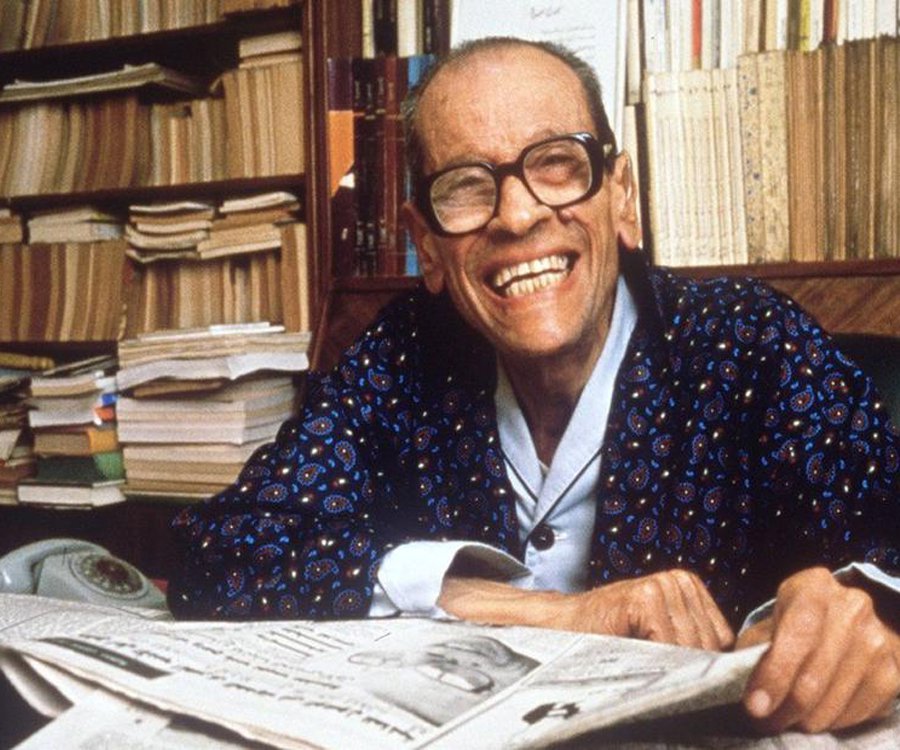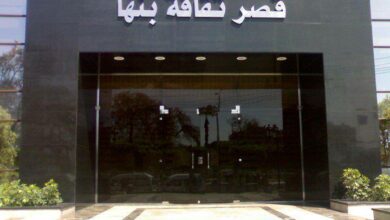After screening at the 66th Venice International Film Festival (2009) and the 26th Alexandria Film Festival for Mediterranean Countries (2010), “Al-Mosafer” (The Traveler) finally hits local cinemas this week. “Al-Mosafer” is the feature debut of director and screenwriter Ahmed Maher. Produced in 2009, the film has faced much criticism from local filmmakers and critics, as well as, a recent dispute with the Board of Censors.
Maher studied filmmaking in Cairo and Rome and produced several shorts and documentaries in addition to the award winning TV film “Signs of April.” He also collaborated with cinematographer Marco Onorato in filming the award-winning "Gomorrah" in 2008.
In “Al-Mosafer,” the influence of Italian cinema is clear, especially in the first segment, which looks like a Federico Fellini homage, with boats and festivities as well as Fellini’s familiar image composition.
“Al-Mosafer” is an ambitious artistic project. It stands out from Egyptian mainstream cinema, which often presents mediocre adaptations of Hollywood thrillers and comedies. However, the film faced media criticism, pressuring Maher and the film's cast, Omar Sharif, Khaled al-Nabawy and Cyrine Abdel Nour, to repeatedly speak in its defense.
The film’s unconventional plot revolves around three crucial days in the life of its protagonist, Hassan. The first act takes place in the city of Port Said in 1948, where Hassan (al-Nabawy) falls in love with the beautiful Nora (Abdel Nour), while traveling on a sailing boat. In the second act, happening in 1973 Alexandria, Hassan, now a middle-aged man, arrives to meet Nora’s daughter, Nadia, only to realize that she might be his own. The third and final act takes place in Cairo in 2001, where Hassan, now an old man acted by Sharif, tries to find meaning to his life by finding Ali (Sherif Ramzy), Nora’s grandson to make peace with him.
Maher talks to Al-Masry Al-Youm about his experience with “Al-Mosafer.”
Al-Masry Al-Youm: How did you finance your first feature film?
Ahmed Maher: Five years ago, the Culture Ministry announced a LE10 million fund to support feature films. So, I applied with the script of “Al-Mosafer” and was selected. “Al-Mosafer” is the first film produced by the Culture Ministry since Shadi Abdel Salam’s 1973 movie “Al-Mummia” (The Mummy).
The film then became one of six screenplays awarded an additional LE5 million in funding. Other winning films included “Rasael al-Bahr” (Sea Messages) by Dawood Abdel-Sayed and Osama Fawzy’s “Bel Alwan al-Tabeia” (In Natural Colors).
Al-Masry: But, you also tapped into international funds, given that the local market is dominated by private companies, while national establishments like the Culture Ministry’s Egyptian Film Center and Cultural Fund only supported shorts and documentaries.
Maher: I submitted “Al-Mosafer” to the Culture Ministry, and a board of critics read and approved the script without comments. Before knowing about the board’s approval, I also applied for international funding. Still, the experience of producing it in Egypt was very rewarding, as I was granted full creative control over the film. I believe that this artistic freedom was the main reason “Al-Mosafer” was qualified for screening in international festivals in Venice, Abu Dhabi and Alexandria.
We started shooting the film in 2007 over a period of 7 months. Editing took another full year and the entire budget reached LE15 million. As for the screenplay, it took me four years to write it.
Al-Masry: Why did your film face much criticism after it won the fund?
Maher: I wasn’t surprised by the negative criticism of “Al-Mosafer,” but rather by the amount of it. Some critics still can’t see beyond conventional filmmaking, and others attacked the film before even seeing it. I found myself faced with a scary idea that experimental Egyptian filmmakers can only succeed abroad.
I should have received more support from the media after the awards the film got over the past two years. But, history only repeats itself, as for years, filmmaker Youssef Chahine was solely recognized by the international film society. Nowadays, however, we have many talents in Egyptian cinema with an international reputation that need to be appreciated locally as well.
Al-Masry: Tell our readers more about the film.
Maher: “Al-Mosafer’s” concept is the result of several ideas I had for a while and was finally able to weave into a plot that focuses on the life of one man. Hassan – the protagonist – is a hollow antihero that the viewer engages with throughout the film. In the beginning, he is naïve like a newborn, and then his life experiences change him, as the viewers get to see in the last segment of the film.
Al-Masry: And, why did you cast Khaled al-Nabawy to play the role of Hassan in the first two acts of “Al-Mosafer”?
Maher: I was first introduced to Nabawy as an acting coach for his role in “Hassan Tayara.” During that period, I discovered that he’s a hardworking and talented actor, who seeks diverse characters in regional and international films. I easily saw him fitting the role of Hassan, who is later acted by Omar Sharif.
Al-Masry: But his performance in the second segment of the film, where he closely imitates the gestures of Sharif, was heavily criticized.
Maher: Al-Nabawy was not imitating Sharif. He was trying to create a link with the older Hassan played by Sharif.
Al-Masry: Tell us about your next project?
Maher: I’m very satisfied with “Al-Mosafer’s” experience; both the success and controversy. I shall continue to write and direct films I fully believe in, and won’t be dragged into the commercial scene like many others did after their debut.
As an arthouse film “Al-Mosafer” will open this week in only five screens across Egypt.




